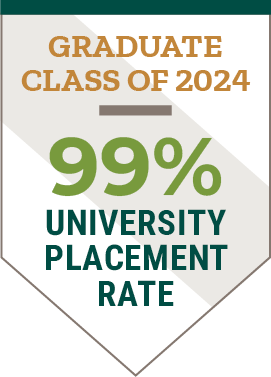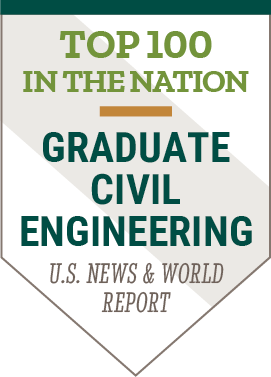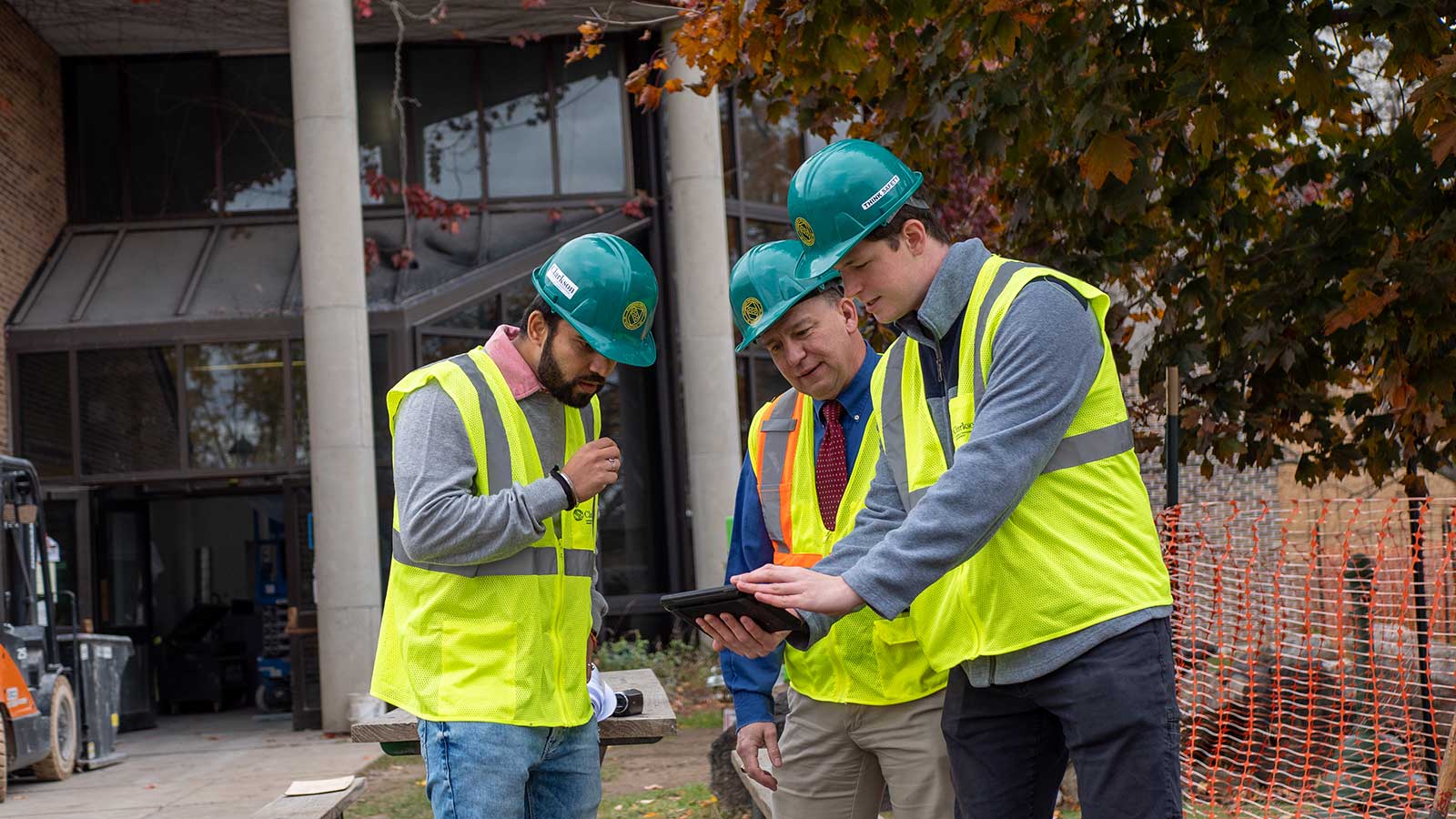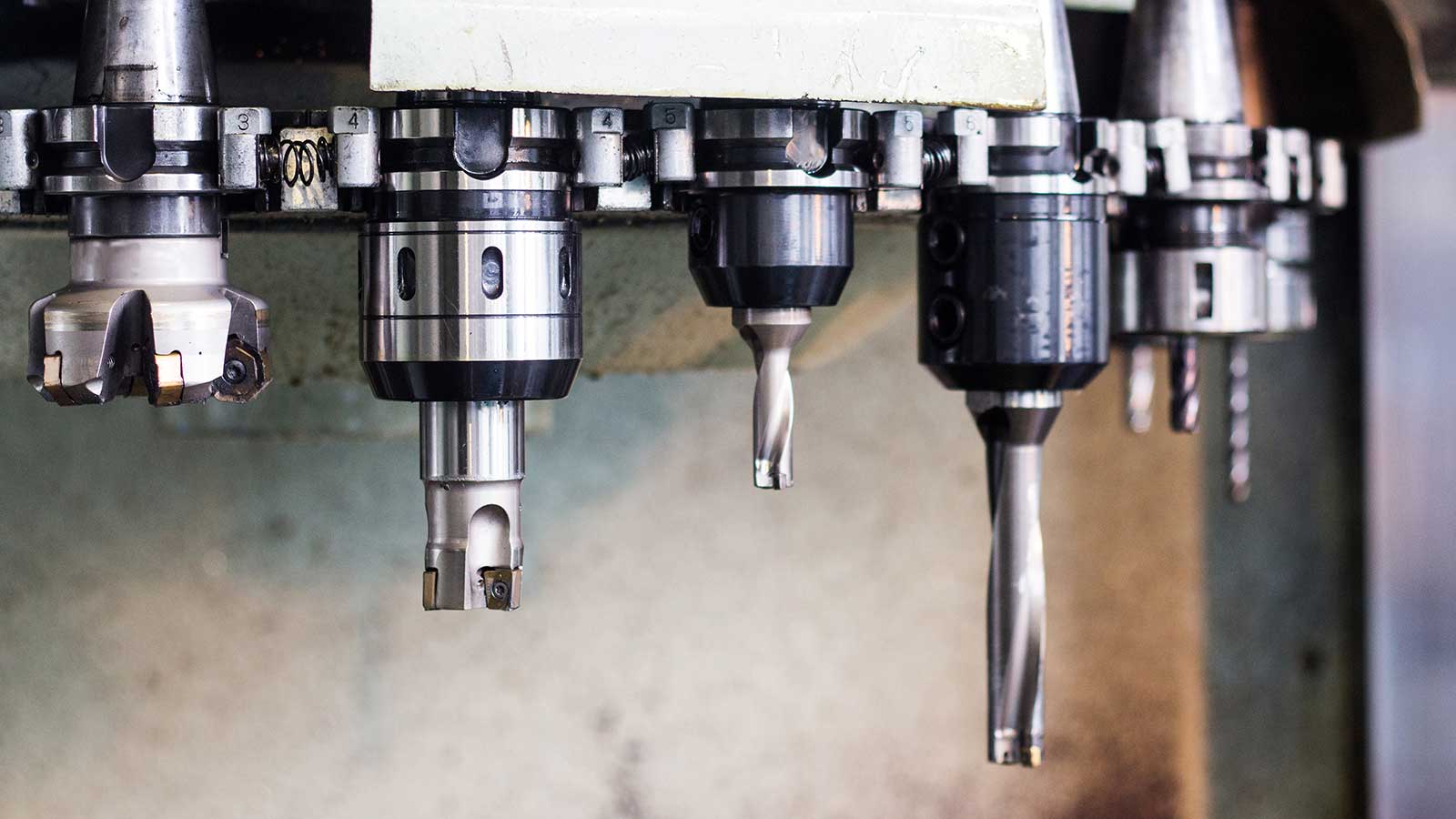Program Requirements
View the course catalogue for current program requirements, course numbers and credit hours
Course Catalogue
- A minimum of 30 credit hours of graduate coursework, with at least 20 credit hours of course and seminar work. The balance of coursework must be consistent with the research or professional experience component. Students complete the program in 18 to 24 months.
- Satisfactory completion of one of the research or professional experience components listed below.
- A written thesis based on independent research
- A comprehensive examination
- An appropriate, professionally oriented special project
- Twenty of the 30 minimum credit hours must be earned in residence
- One academic year of full-time study beyond the baccalaureate
- A maximum of 10 credit hours of transfer credit (grade of B or better)
- All work must be completed in four calendar years.
- All students must complete a thesis and defend it orally to a committee consisting of a minimum of three faculty members.
Specialty Areas
All students must pass a group of core courses in one of the following specialty areas: environmental, geotechnical, structural or water resources engineering.
- Environmental Engineering: Understand what’s needed to build a more sustainable world.
- Geotechnical Engineering: Focus on the composition of soil and rocks in relation to construction. This entails defining the strength that these elements can provide to bear loads.
- Structural and Materials Engineering: Learn how to optimize a building’s strength, stability and overall resilience.
- Water Resources Engineering: The Earth only has a small amount of water fit for human consumption. Gain the skills to better use this finite resource.
- Transportation Engineering: Explore related planning, design, operation, analysis and maintenance skills.
Environmental Engineering
Water and Wastewater Engineering: Satisfied by an appropriate course
as an undergraduate or CE579.
- Environmental Chemistry
- Chemodynamics
- Environmental Systems or CE586 Industrial Ecology
And one of the following:
- Environmental Physico-Chemical Processes
- Environmental Biological Processes
- Air Pollution Control
A course in applied statistics is strongly recommended.
Geotechnical Engineering
Four from the following list:
- Introduction to Structural and Soil Dynamics
- Elastic Waves and Non-Destructive Tests
- Advanced Soil Mechanics
- Advanced Foundation Design
- Advanced Fluid Mechanics
- Introduction to the Finite Element Method
- Theory of Elasticity
- Continuum Mechanics
- Computational Fluid Dynamics
Structural and Materials Engineering
- Experimental Methods in Structures
- Continuum Mechanics
And two of the following:
- Fracture Mechanics of Concrete Structures
- Introduction to Structural and Soil Dynamics
- Computational Methods of Structural Analysis
- Analysis of Advanced Composite Structures
- Introduction to Finite Element Method
- Theory of Elasticity
- Properties and Performance of Concrete Materials
- Cement Chemistry
- Plasticity
Transportation Engineering
- Transportation Systems Design
- Traffic Engineering
Two from the following list:
- Introduction to the Finite Element Method
- Sustainable Infrastructure and Building
- Digital Signal Processing
- Stochastic Processes
- Control Systems
- Optimization Techniques in Engineering (or similar optimization courses)
- Advanced Applied Statistics (or similar advanced data analytics courses)
- Computer Algorithms
- Computational/Machine Learning
- Artificial Intelligence
- Human Computer Interaction
Courses on systems theories and data analytics are strongly recommended.
Water Resource Engineering
Four from the following list:
- Advanced Fluid Mechanics
- Continuum Mechanics
- Watershed Analysis
- Stream Riparian System and Fluvial Morphology
- Computational River Dynamics
- Shallow Water Hydrodynamics
- Sediment Transport
- Hydrodynamic Dispersion
- Coastal Engineering
- Hydraulic Engineering in Cold Regions
- Computational Fluid Dynamics
Other Information
Exceptional students may be invited to proceed directly to the PhD; such students will be awarded the MS concurrently with the PhD.
Students in the MS program in the Department of CEE can be eligible for partial tuition assistance.*
*Self-paying students may receive a tuition scholarship for up to 40 percent of the tuition for which the student has registered. The graduate school, upon recommendation by the department, provides this scholarship. Full-time MS students may receive four credits of support for three semesters. These merit awards require up to six hours of departmental work per week.





